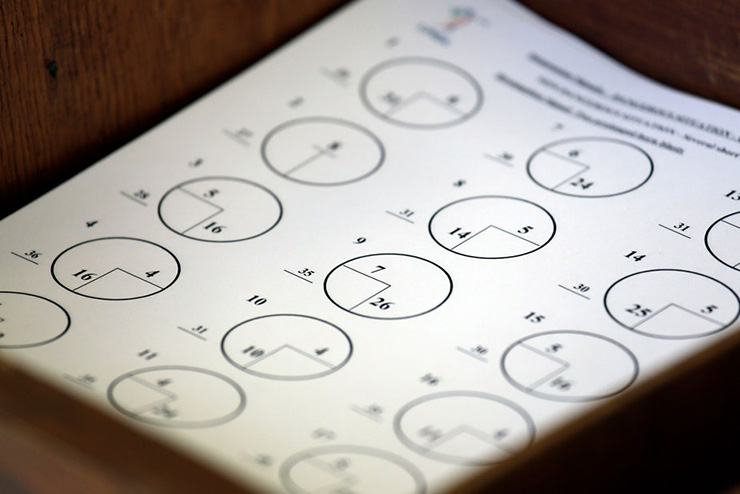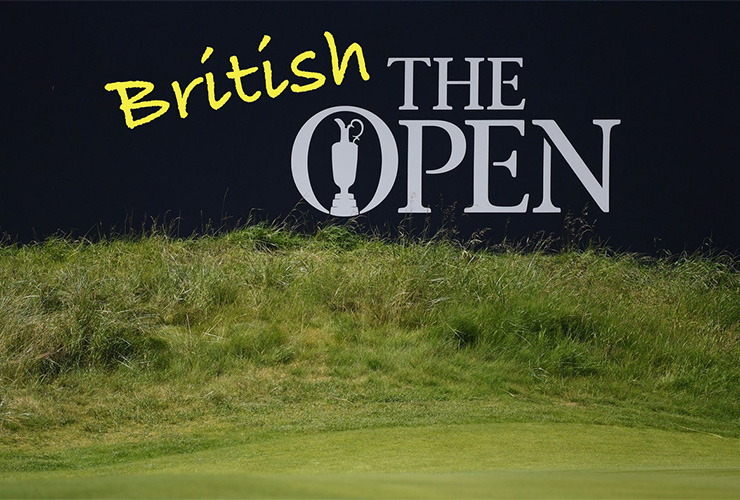By Shane Ryan
I golfed the other day at my local North Carolina links course, and when I took five hits to get out of the sand near 16 green—with an easy pin placement, no less—I thought, “it’s like I’m in one of the high sand traps at the British Open!”
Did any part of that sentence drive you crazy? Did all of it? If so, you have been conscripted as a soldier on the front lines of golf’s language wars.
I’m not sure exactly why golfers tend to fight about vocabulary more than other fans. It could be a matter of having a lot more time to kill playing the game itself, which carries over into the entire discourse. It could be (I hate to say it), a knock-on effect of whatever elitism remains in the game, where the words we use become a secret code for whether we truly belong. Or maybe it’s none of that, and maybe it doesn’t matter. In any case, I’m not here for a history lesson. I’m here to examine the most prominent debates, and then, using the solemn power vested in me by the Golf Digest byline, to declare a victor once and for all. The decisions that follow will be binding.
1. “Golf” … can it ever be a verb?
I would argue that nothing quite fires up the golf language police like this one, and it has been covered endlessly, including at this very outlet. Golf, the language police say, is a game, and “playing golf” is the activity. Therefore, to say that you’re “golfing,” or that you “want to golf,” or that you “golfed yesterday,” is fundamentally incorrect. (It’s true that you can run or swim or ski or canoe, but those aren’t ball sports and, to me at least, they belong to a different category.) You wouldn’t tell your friends that you “basketballed” or “tennised,” the logic goes, because that would sound weird.
So the question we really need to ask is this: Why does it sound less weird when golf is used as a verb? Why, to the outside world, does it seem pretty normal?
I don’t know if there’s a satisfying answer to that beyond the fact that the English language is full of strange and inexplicable quirks. For example, why is the past tense of the word “go” “went”? There’s definitely some arcane etymological explanation (probably involving Germans), but on the surface it makes no sense. So if golf is a verb, it’s one of our least bizarre anomalies. And, in fact, here’s some bad news: It is a verb, no matter how much serious golfers object. It says so in the Oxford English Dictionary, the authority on our language, and Merriam-Webster agrees—it’s an intransitive verb, just as it’s used in the examples above. (This is also true in France, per some very quick crowd-sourcing.) The anti-verb crowd tend to acknowledge the dictionaries in their arguments, and then go on to say, “too bad, they’re wrong.”
But they’re not. When you boil down the no-verb movement, it seems to be a case of in-group vernacular that gains its power through tradition rather than an actual rule. And to what end? To shame the accidental verb users?
Verdict: Let it go. Golf is a verb, and there are bigger battles to fight.
2. Albatross vs. Double Eagle
Let’s make this one really quick: Why the hell would you ever use double eagle? First and foremost, it’s mathematically bogus. If an eagle is two strokes under par, a double eagle should be four strokes under par. So why is it used for three strokes under par? Second, it lacks creativity. Third, the alternative is “albatross,” which is both fun, unique and not an affront to basic arithmetic.
Verdict: Protect the bald eagle, kill the double eagle.
3. Sand Trap vs. Bunker

Sam Greenwood
When I put the language question out to Twitter, this particular distinction was most common in the replies. I knew the fight existed, but I didn’t realize how contentious it was. In this case, the purists fall on the side of “bunker,” insisting that it’s the only game in town. Most of the initial replies had the same tone as the noun/verb debate, in that they were very indignant without being very specific. When I asked for clarification, this reply was representative:
“There isn’t a single sand trap listed in the rules. They are bunkers. I’m fine with people using a nickname for something—drink or short stuff for instance—but the rules have said forever they are bunkers. Not traps. So I’m sticking with that.”
And another: “Traditionalists consider ‘trap’ to be golf slang, not proper.”
And another: “It’s a rules thing. Bunker is the proper term for what is commonly called a sand trap. Bunker is official terminology, sand trap is just what people say.”
Here again, as with the verb debate, a lot of people seem to be at war with common usage. And again, I keep going back to the fact that when you’re not neck-deep in the traditions and language of golf, and you’re just around the sport casually, you’ll hear “sand trap” all the time. It’s fun to get into debates about this stuff online, but if you were playing with a friend, and that friend said “sand trap,” would you really correct him? And if you would, why? Is it just a way to beat your chest? Is it, dare I say, snobbery? In the English language, we have to make space for evolution. Sand trap is here, and it’s not going away.
Verdict: Bunker is the cooler word, but you’re going to have to accept “sand trap.”
4. Tied vs. All Square (vs. Halved)
This may sound contradictory to the sand trap/bunker debate, but part of what makes a sport like golf fun is that it has its own terminology. Why on earth would you sanitize the game’s patois by saying “tied” like everyone else on the planet? All square is so much better! The USGA and R&A recently implemented an official change in an effort to simplify the language, though they still allowed the more traditional terms. But for me, saying a match was “all square” or that a hole was “halved” was already very intuitive, and unique terms like those are more likely to draw outside fans in because they create, partly through language, a distinct and intriguing world that is nonetheless simple to understand. Reverting to bland terms like “tied” just takes the color out of that world.
Verdict: Given the choice, “all square” and “halved” are better every time.
5. Alternate Shot vs. Foursomes, Better Ball vs. Fourballs
By the logic above, I should support “foursomes” here, but there’s a problem. First, a “foursome” is commonly understood by most human beings as a group of four people, and more specifically a group of four golfers, long before we know that it refers to the alternate shot format in match play. Plus, it’s vague. Unlike “all square” or “halved,” there is nothing in that word that tells you what’s happening. Third, the other pairs format in events like the Ryder Cup is called “fourballs” which sounds very similar. Confront a casual fan with those two terms and ask him to discern which one involves alternating shots, and that fan will have some studying to do. This would be a no-brainer if the foursomes/fourballs terms were more distinct, but instead they’re highly confusing for a new fan.
Verdict: Make every effort to use and understand foursomes and fourballs, but allow the newbies a crutch, and don’t throw a fit if “alternate shot” in particular is used on a TV broadcast.
6. The British Open vs. The Open Championship (or “The Open”)

Ben Stansall
I wrote about this in 2015, and my take then was that nobody should tell Americans they can’t call the fourth major the British Open. I stand by the logic: We call our own tournament the U.S. Open, we don’t care if Aussies or Brits put “U.S.” in front of our Masters or PGA Championship, and therefore we should be allowed to distinguish between our Open and their Open. And I still think “The Open Championship” reeks of exceptionalism. When I wrote that piece, people were wayyyy more upset than I ever imagined they would be, and one British journalist actually blocked me on Twitter as a result. HOWEVER, my opinion has softened over the years. People should be allowed to decide what they want to be called, and the same is true of their golf tournaments. It’s always been called the Open Championship, so for me, it’s no longer a battle worth fighting.
Verdict: This American, at least, will call it the Open Championship in writing. But I won’t insist, and in conversation I’ll almost definitely keep calling it the British Open.
7. Hole Location vs. Pin Placement vs. Pin Location vs. etc.

Hunter Martin
First instinct: For God’s sake, who cares?
Second instinct: Figure out the actual disagreement. It seems that Team Pin believes that “hole location” is dubious since a “hole” technically refers to the entire … hole … and not the much smaller hole that the drill in different locations on the green. Then again, broadcaster Will Haskett says that purists actually don’t like “pin,” because it’s not part of the official terminology, and others say that a pin or a flag is a marker, while the hole is the ultimate target. I am now more confused than ever.
Verdict: Screw it, everyone uses “cup” now.









